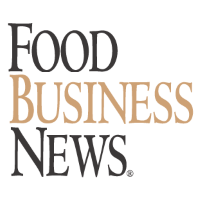
E-Commerce is Too Important to Ignore
For my commentary this week, I wanted to do something different and talk about the number one mistake that I see many organic food companies making – not adequately addressing their e-commerce strategy.
And if you needed any additional inspiration about this topic, all you have to do is look at Zak Normandin.
Zak is the former founder of Little Duck Organics and is now the founder of Dirty Lemon (not organic). His beverage company does 100% of its sales online and much of it is done by text. Yes, text!
For years, I have been writing about Zak on Living Maxwell and called him “a star in the industry” in 2013 when he debuted using text messages for customer service. Zak is one of the most brilliant, creative and out-of-the box thinkers I have ever met.
If your goal is to increase online sales and have a direct relationship with more of your customers, here are several areas to look at.
REDUCE SKUs In my view, companies have too many SKUs and are constantly thinking about what will be next. What does this have to do with e-commerce?
A great deal.
More SKUs means more people are needed to market and produce the product, even if you are using a co-packer. These valuable resources could be deployed towards building or refining your e-commerce strategy.
There are hundreds of millions of people online who do not know about and/or are not purchasing your existing products. Before rushing new products out the door, give this some serious thought.
INNOVATE DIFFERENTLY While I am certainly for new product development, companies are not innovating enough with e-commerce in mind.
If your product is too big or too heavy (glass bottles) for easy shipment to consumers, it is worth developing a product that does work for e-commerce and can be easily shipped.
This new model of distribution should be a factor in how you innovate.
NEW SKILL SETS NEEDED Hiring a person to do social media, whose main responsibilities are posting pictures on Instagram and responding to Tweets, is no longer sufficient.
The new skill sets that these people should have include Internet marketing, Facebook, Instagram and LinkedIn ads, PPC (pay-per-click), website optimization, A/B testing, email list building, and revenue conversion.
If these people are hard to find or too expensive, you may think about having your existing social media person trained on these skills and have them eventually become experts on these subjects. Soon, this position could be a revenue-generating one.
OFFER AFFILIATE PROGRAMS If you are selling products on your website, having an affiliate program is a must. Yet, far too many companies do not have one.
When bloggers write about or promote products, they want to make money for doing this. And if you do not have an affiliate program, they’re going to send a lot of that traffic to Amazon instead, where they can get paid for the sales that they generate.
Having an affiliate program does not guarantee that all bloggers will use it (they may still prefer using Amazon) but some definitely will. At the very least, you should have the ability to offer it.
INCREASED VALUATION Without question, the most compelling reason to pour resources into e-commerce is valuation.
Even if your e-commerce revenues are small, compared to your overall revenues, what matters is that you have them and that they are growing.
If you can show strong month-over-month growth of online sales, this is going to be very attractive to anyone who wants to buy or invest in you, and it will definitely add to your valuation.
—
Even though retail stores will never go away, it is more important than ever to be giving greater thought to your e-commerce strategy.
I hope today’s commentary has been helpful.
 |
Have a great week! 
Max Goldberg, Founder |
Quick Hits
* If you know anyone who might be interested in reading Organic Insider, I am now offering people a free, 2-week trial – no cost, no obligation, no credit card required. They can sign up HERE.
* Make sure to take a look at my in-depth profile of John Foraker, President of Annie’s and one of the most important, influential and well-liked people in the organic food industry today.
* Best of luck to Liz Burkhart, a rock star who worked in PR at Whole Foods for the last 8 years. She has left the company and joined a health-tech start-up called HitCheck as VP of Marketing and Communications. Liz will be missed very, very much.
Weekly News Summaries


Organic Animal Welfare Standards Get Delayed
By Jeremy Bernfeld
Implementation of organic animal welfare standards has been pushed back two months to May 19th. This is leading to some speculation that they may be amended or canceled altogether.

The Struggles Continue for Whole Foods
By Caitlin Dewey
Whole Foods just announced declining same-store sales for the 6th straight quarter and the closing of 9 locations.

Is the EPA Protecting Monsanto and the Chemical Industry?
By Carey Gillam
Has the EPA been unfairly protecting Monsanto and hiding the truth about the cancer-causing effects of glyphosate? New court filings contain some bombshell information.


Farmers in Colorado are Transitioning to Organic
By Max Siegelbaum
With the demand for organic continuing to explode, more and more farmers are switching to organic.

Report: U.S. Supply of Organic and Non-GMO Grains Cannot Keep Up
Despite stories of how the next American farm bust is upon us, the U.S. is unable to meet demand for organic and Non-GMO grains. I wonder if Washington, D.C. is paying any attention to this.

An Investigation into the Animal-Welfare Certifications
By Stephanie Strom
Organic food companies often use a variety of third-party, animal-welfare certifications on their packaging. But what do they really mean? Stephanie Strom of The New York Times tells us.


Hain Celestial to Have Concession Stand at Madison Square Garden
The world's most famous arena, Madison Square Garden, just announced that Hain Celestial will now have its own concession stand, selling organic, natural and gluten-free products.

Once Upon a Farm Raises $3.1M Series A
By Brittany Meiling
Organic, HPP baby food company Once Upon a Farm has just closed a $3.1 million round of financing. This market segment is really going to take off.

Target Announces Accelerator Program
By Monica Watrous
Target has just launched an accelerator program called Target Takeoff and is seeking food and wellness companies that have raised less than $3 million. Applications are due by February 28th.
Grocery Chain Aldi is Spending $1.6 Billion, Seeing Huge Growth in Organic
By Leslie Patton
Aldi is spending $1.6 billion to go after Whole Foods and Sprouts. The chain also saw 54% growth in its organic private-label brand, SimplyNature.
The material in this newsletter is copyrighted and may be reprinted by permission only. All requests must be in writing. Please use our contact form to request republication rights.
Newsletter Archive
Quick Hits
* If you know anyone who might be interested in reading Organic Insider, I am now offering people a free, 2-week trial – no cost, no obligation, no credit card required. They can sign up HERE.
* Make sure to take a look at my in-depth profile of John Foraker, President of Annie’s and one of the most important, influential and well-liked people in the organic food industry today.
* Best of luck to Liz Burkhart, a rock star who worked in PR at Whole Foods for the last 8 years. She has left the company and joined a health-tech start-up called HitCheck as VP of Marketing and Communications. Liz will be missed very, very much.
